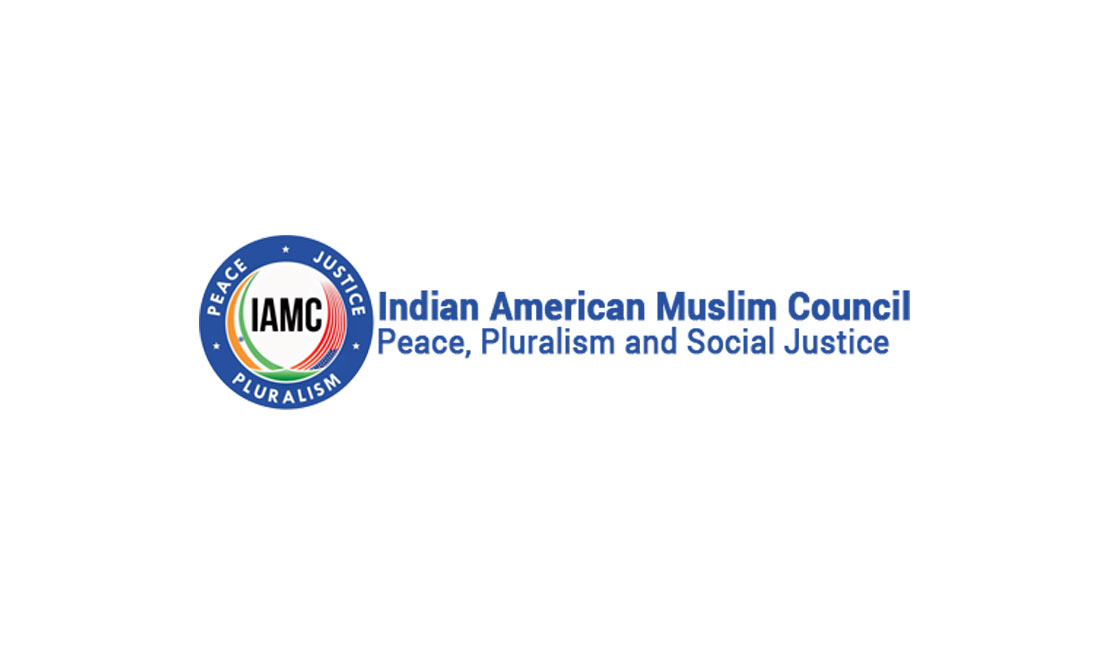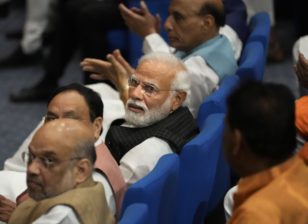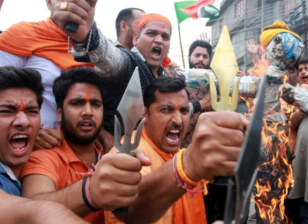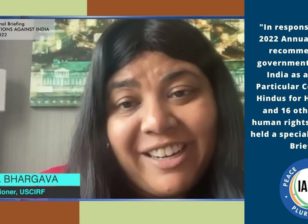Under Modi, India Is an ‘Ethnocracy’, Not a Democracy – By Indrajit Roy
Soon after the Bharatiya Janata Party (BJP) stormed to power in India in May 2014, Prime Minister Narendra Modi took the unprecedented step of celebrating his victory on the banks of the Ganga in the holy city of Varanasi. The city was the parliamentary constituency that elected him, so it was to be expected that he would thank his voters. However, the spectacle of the Prime Minister, accompanied by senior colleagues who would go on to assume key Cabinet portfolios, unapologetically flaunting his Hindu nationalist credentials was a clear break with the past….
Modi’s early actions offered a glimpse into his future years in office, in which Hindus would come to be considered the core of the Indian nation and religious minorities regarded as threats. The political and policy practices under Modi exemplify India’s transition from a democracy to an ethnocracy: defined by the Israeli sociologist Oren Yiftachel as the specific expression of nationalism “where a dominant ethnos gains political control and uses the state apparatus to ethnicise the territory and society in question” (Yiftachel, 2009: 730)….
In line with Yiftachel’s formulation of an ethnocracy, we are witnessing the consolidation of the dominant ethnos, Hindus in this case, as the core of the Indian nation. Alongside, we see the identification of religious minorities as threats, intensifying territorial contests between Hindus and Muslims, a Hindutva ethnonationalism that permeates political discourse, and a widening of a long-standing political-economic gap between Hindus and Muslims….
https://www.thequint.com/voices/opinion/under-modi-india-is-an-ethnocracy-not-a-democracy




